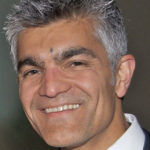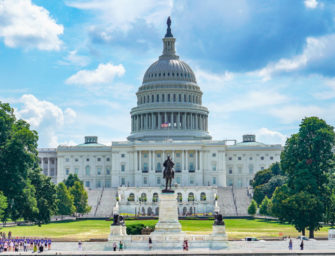New Climate Report Calls for an Action Network

Rajul (Raj) Pandya, Director, Thriving Earth Exchange
AGU, especially through the Thriving Earth Exchange, has been reaching out to communities of all sizes and learning more about what they want to do with respect to climate change. What we hear again and again is a willingness, even an eagerness, to prepare for the effects. Community leaders tell us, however, that they aren’t sure exactly where to start or how they can integrate adaptation and mitigation plans into the existing plans they have for their communities. Whether it’s leaders of a neighborhood, small town, large metropolis, or a sovereign tribe, we hear a common question: How do I use the research describing the impacts of climate change to take concrete steps that are right for my community?
A new report released today addresses this challenge head on. The report was prepared by the Independent Advisory Committee (IAC), a group of climate researchers; state, local, and tribal officials; and other experts. Evaluating Knowledge to Support Climate Action offers a pathway to build on the excellent work of national assessments that have reported on climate impacts, such as the most recent National Climate Assessment released last November by the federal government. The IAC’s report describes communities that are planning for climate change adaptation and mitigation and shows how climate science is currently being used to support that planning. In fact, the report highlights how a Thriving Earth Exchange project in Brookline, Mass., was able to use information from the National Climate Assessment to evaluate options for adapting to more intense heat.
The report identifies the ways in which climate science could be even more useful, by outlining the kinds of strategies that have been shown to connect that science to community priorities, and exploring how recent advances in fields like citizen science, artificial intelligence, and large-scale computing can enhance the use and usability of climate science. The most forward-looking part of the report calls for a new kind of climate assessment, one that focus not on the science of climate change but how to connect that science to real world climate action. To do that, the authors propose a new civil-society based consortium to help facilitate the connection between climate science and climate action. A few authors of the IAC report have teamed up with others to take on the challenge by forming the Science for Climate Action Network (SCAN). Read more about that initiative on Eos.
Two prominent themes of the report match what we are learning at the Thriving Earth Exchange. The first theme is that you can’t do a bunch of science, put it out there, and expect people to drop everything and use it. Local situations are complex and climate priorities are entangled with community priorities. A much more effective strategy is to work with communities directly, learn more about what communities need, and have that inform both the research and application of climate science—an approach the report calls “coproduction” that is very much like the Thriving Earth emphasis on community science.
A second theme of the report is the importance of equity. While we have long recognized the disproportionate impact of climate change on the poorest and more vulnerable, this report calls for the inclusion of those communities in designing research on climate change and evaluating its use and usability. This emphasis on equity underlines AGU’s mission across our organization, especially in the Thriving Earth Exchange and the new Ethics and Equity Center.




Man isn’t doing anything to change the climate. The variations we observe are entirely natural. The Geoengineering claptrap is at best a waste of time. Moreover, the presence of a bit more CO2, some warmth, as well as added rain and snow are improving living conditions on the planet. Why would we want the Earth in stasis just as is getting better ?
Richard Cronin’s observes that Man isn’t doing anything to change the climate. It is not clear what database he is using to come to this conclusion. Mr Cronin needs to explain why there is a strong correlation between the rise of man-made CO2 levels and accelerated warming of both the atmosphere and ocean over the past 50 – 30 years. Geological records clearly show that the magnitude of warming and the rate of warming during the past 50 years of accelerated greenhouse gas emissions is significantly greater that any other measured interval during the past 8,000 years. The evidence for the impact of man-made climate changes since 1950 or earlier is very clear although Mr Cronin may not be able to see that Man is doing anything to change climate. It is simply not true that all the climate variations we have observed in the past 50 years are natural. Moreover, although the climate may be getting better where Mr Cronin lives, for the majority of North Americans and Europeans this is not true: massive floods, droughts, storms and landslides are increasing and taking a large toll on human lives and livelihoods.